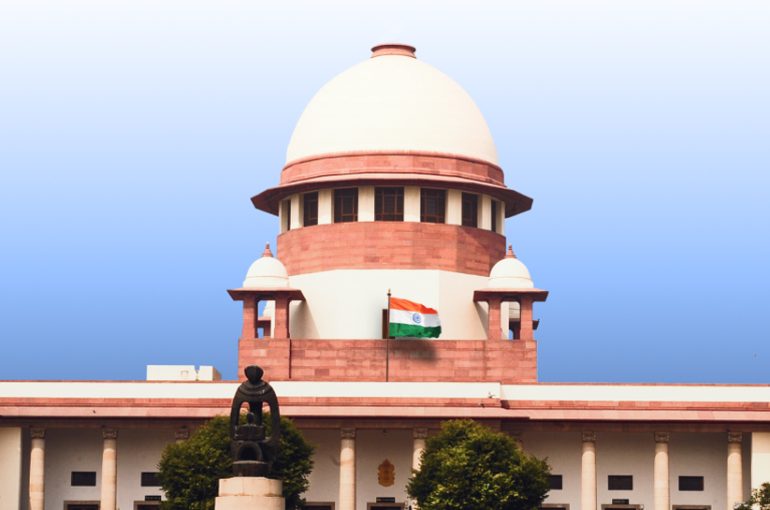SUPREME COURT UPHOLDS DUE PROCESS IN EMPLOYMENT TERMINATIONS SETTING ASIDE SUSPENSION OF JHARKHAND SCHOOL TEACHERS

Introduction
In a significant Judgment titled Ravi Oraon v. The State Of Jharkhand & Ors. (Civil Appeal No. 11748 of 2025), the Supreme Court of India recently restored the services of certain school teachers in Jharkhand who were dismissed months after their appointment on the ground of ineligibility, based on a charge not raised in the initial show cause notice. The Court emphatically held that penalizing individuals for reasons they were never put on notice violates the foundational principles of natural justice. The case, decided by the Bench comprising Justices Dipankar Datta and K.V. Viswanathan, has reinforced the necessity for strict adherence to due process, particularly in service and employment matters where civil consequences are at stake.
Factual Background
The dispute traces back to the appointments of the appellants—Ravi Oraon, Premlal Hembrom and Surendra Munda—as Intermediate Trained Teachers in Jharkhand in December 2015. Their recruitment followed a transparent process and they duly commenced service. However, on 27th September 2016, each teacher received a show cause notice alleging ineligibility due to non-fulfilment of the minimum marks criterion for Scheduled Tribe (ST) candidates. The Notice required at least 45% in the intermediate examination, a threshold which the teachers countered, pointing to a 5% relaxation for STs as per the recruitment rules, making the effective requirement 40%. Each teacher substantiated their eligibility, when vocational subject marks were considered. The issues surrounding the validity of their graduation certificates were separately clarified, as graduation was not a precondition for the post. Despite this defense, the Jharkhand Government abruptly terminated their services on 7th October 2016, adopting a novel rationale: the Teachers’ marks fell below 40% when vocational subject scores were excluded. It was an argument that had not been previously raised in the show cause notice or challenged in the initial proceedings.
The Single Judge at the Jharkhand High Court found in favor of the teachers, holding their termination unjust. The Division Bench overturned this, accepting the State’s argument regarding exclusion of vocational marks based on Rule 21 of the 2012 Rules, prompting the Teachers’ Appeal to the Supreme Court.
Contentions of the Parties
Appellants (Teachers):
The primary allegation in the Show Cause Notice was the failure to achieve the required marks for ST candidates (i.e., less than 40%). The Appellants argued that with the inclusion of vocational marks, they met the criterion. They contended that neither the original recruitment notification nor any statute mandated exclusion of vocational subject marks when computing eligibility. They maintained that the sudden introduction of a new, unstated eligibility criterion after their appointment and Reply to the Show Cause Notice was arbitrary and deprived them of a meaningful opportunity to contest the new charge.
Respondents (State of Jharkhand):
The State asserted that as per Rule 21 of the Jharkhand Primary School Teacher Appointment Rules, 2012, marks from vocational subjects could not be included for preparing merit lists. It argued that the guideline on the mark sheet, which allowed for addition of vocational marks, was not applicable for recruitment purposes and only applied to examination results. The State claimed there was no violation of natural justice, as even in the absence of vocational marks, the Teachers did not meet the minimum eligibility.
Court’s Decision
The Supreme Court scrutinized the underlying rules, analyzed the factual matrix, and decisively held in favour of the teachers. Key findings included:
1.Distinction Between Eligibility and Merit List Preparation: The Court clarified that Rule 4, which governs eligibility for appearing in the Teacher Eligibility Test (TET), allows the inclusion of vocational marks, whereas Rule 21, which excludes vocational marks, only applies when preparing the final merit list post-examination, not for determining initial eligibility.
2.Breach of Natural Justice: The Court found that the manner of termination was fundamentally flawed. Penalizing the teachers on a ground not present in the original notice or proceedings—specifically, the exclusion of vocational subject marks—denied them a fair hearing. This procedural impropriety rendered the dismissal orders unsustainable.
3.Relief Granted: The Supreme Court set aside the Order of the Division Bench and the administrative termination, directing that the relevant teachers be reinstated with continuity of service and full arrears of pay. However, the period during which they were out of service would not count towards experience for promotion. In the case of one Appellant who had since passed away, his heirs were entitled to back pay and other applicable benefits.
Conclusion
This Judgment is a vital reaffirmation of the principles of procedural fairness and holds arbitrary action by the employer cannot be justified in disciplinary actions. The key takeaway is that public employers must ensure due process, charges must be clearly framed, communicated and an opportunity to be heard must precede adverse action. Moving the goalposts after a defense is raised is unfair and unsustainable in law.
YASH HARI DIXIT
Legal Associate
The Indian Lawyer & Allied Services
Please log onto our YouTube channel, The Indian Lawyer Legal Tips, to learn about various aspects of the law. Our latest Video titled “Legal Aspects of Startup Funding in India | Complete Guide 2025 | Advocate Sushila Ram Varma” can be viewed at the Link below:





































Leave a Reply